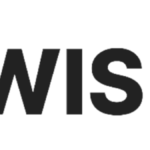
Health administrators are essential to effectively running healthcare organizations and quality patient care. They bring their knowledge and skills to manage operations for the betterment of the facilities they work in. They have a role in shaping the future of healthcare and ensuring patients have access to the care they need. A master’s degree is necessary for having an executive and managerial career in healthcare. Once qualified, there are many interesting and worthwhile careers to choose from.
Health administrators work in numerous settings, such as hospitals, outpatient clinics, senior care facilities and doctors’ offices. They provide management and leadership, ensuring high-quality patient care, the achievement of goals and objectives, and meeting community needs. Healthcare is a continually developing discipline in complex conditions, where systems are always adapting. The best leaders are versatile and strategic and can apply creative approaches to effective decision making.
A master’s degree in health administration can further the education and training of managers and leaders in healthcare. Programs are designed to provide an understanding of the current health industry. Students learn how to address critical organizational challenges and manage major policy reforms. Graduates have the abilities, skills and knowledge to take on administrative roles in health organizations, work with diverse specialists and resolve administrative problems.
For those interested in advancing their career, the University of Ottawa’s Telfer School of Management offers an online master’s in executive health administration. The executive health Ottawa program is designed for working professionals and integrates healthcare with business management. Students learn advanced and relevant skills in preparation for becoming effective leaders.
Studying online can be flexible and convenient as students can choose when to study. An online course works well for those who work or have other responsibilities. Students can interact through virtual communication and learn from others who work in diverse settings. Studying while working can be beneficial as what one learns can be applied to their work, heightening the learning experience.
Tasks and responsibilities
Health administrators must understand how their organization fits into the national healthcare system and within a global context. They are concerned with managing and administrating hospital networks, hospital care systems and public health systems in all sectors. The actual tasks of health administrators will differ depending on the function and size of the organization, but the role is similar to other leadership positions. Some responsibilities can include ensuring compliance with regulations and laws, managing finances and processing claims for insurance companies.
The administrator recruits, trains and supervises staff and coordinates work schedules. Other responsibilities include improving the efficiency and quality of patient care, maintaining patient records and keeping detailed records of medical and office supplies. Working in a small facility might mean covering all these roles, but in a large hospital there should be a team of managers, each with their specialization.
Data analysis
Health administrators use data analysis to identify key patterns and trends and improve healthcare efficiency, accuracy and delivery. Data can help in saving money and modernizing processes and care. Data analytics can help predict patients’ medical interventions and treatment based on medical history and age. They also help manage resources, such as the demand for beds, staff and equipment when patient numbers increase.
Operating rooms are costly to run, and data analytics help hospitals optimize the cost without compromising patient care. Accurate staffing is important to save costs and time. Data analytics can help administrators predict and deal with staff challenges. One reason for lost revenue is unpaid claim payments. Health administrators can use data-checking software to reduce errors in processing claims. Data analysis can be used to identify and target specific patient populations needing treatment.
By understanding and utilizing data analysis, health administrators can ensure quality patient care and make positive decisions for the organization.
Managing change
The healthcare industry is ever-evolving, and administrators must be equipped to manage change. Technology is advancing, and the healthcare system is recovering from the demands of the pandemic. The healthcare industry is transforming and introducing new systems, processes and updated technology to provide quality care to patients. Leaders in health administration must be able to plan, communicate and act before and during changing circumstances.
Change management can involve introducing new systems or technologies that automate processes. One successful example is implementing the EHR (electronic health record) system. Adopting the new system involved identifying specific needs, explaining the change to stakeholders, communicating the proposed changes and supporting employees in adapting to them. The EHR system has automated collecting and storing of patient information and has many advantages, including enhanced security of patient data, reduced cost and the secure sharing of information. The system has seen significant improvements in hospital operations.
Health administrators can use change management to help organizations achieve their goals and objectives, improve services, increase patient satisfaction and employee engagement, and enhance the institution’s overall performance.
There are many career options for those with a master’s in health administration, and here are some examples:
- Hospital administrator
Healthcare is a complex and rapidly changing industry, which can mean its administration is complicated. Hospital administrators manage and oversee the operations of hospitals. They ensure a medical facility uses efficient and effective practices that provide quality healthcare. They oversee daily operations, such as staffing levels, quality control and budgets.
Strategic plans are developed and implemented to achieve the organization’s aims and objectives. There is collaboration with healthcare staff, such as nurses and physicians, to ensure the services provided meet the needs of patients. Positive relationships are developed with stakeholders, such as staff, patients and families. Hospital administrators ensure all accreditation and regulatory requirements are met and ethical standards are adhered to.
The role of a hospital administrator is to provide leadership for healthcare organizations. They play an essential role in influencing the future of the healthcare system. They liaise with medical staff, governing boards, and department heads, integrating work done by all departments so there is cohesion and a shared vision. They need excellent communication skills to express ideas clearly to ensure the smooth running of hospitals.
Hospital administrators develop relationships outside hospitals, working with the public and private sectors on research and policy. They often liaise with other administrators to share best practices and improve patient care. They listen to stakeholders, patients, board members and the community before making changes at the hospital.
Hospital administrators have many responsibilities and must be prepared for new commitments. They shape policy and ensure patients have access to the care they need to maintain health and wellbeing. This job can be very demanding, and administrators must be calm under pressure. Hospital administrators also need to be open to continual learning as medicine is constantly developing, and they need to be aware of changes and adjust policies accordingly.
- Health information manager
These professionals oversee, organize and protect patient health information, including data that includes medical histories, symptoms, diagnoses, test results and procedures. Health information managers can work in hospitals, pharmaceutical companies, home health agencies and nursing homes. They use qualitative and quantitative analysis of information with health records to support patient safety, the delivery of healthcare, and business and health decision making. They have responsibility for the confidentiality of health records and are advocates for the patient’s right to secure information.
There are numerous roles within health information management, such as data analyst and coding specialist. Information managers work on various tasks, ranging from research to data integrity. They can fulfill leadership roles by providing guidance to staff. The transition from paper to electronic health records has increased the demand for health information managers. This position is essential in supporting quality care by establishing the reliable and confidential collection and storage of medical records.
An important part of this occupation is organizing, maintaining and protecting confidential patient records and ensuring that nurses, physicians and other healthcare professionals can access medical information when needed. A task in this role could be designing health information systems to comply with ethical, legal and medical standards. Another task could be analyzing clinical data for research, process improvement and reporting.
Health information managers can work independently or as part of a health information management team. They collaborate with nurses, physicians, allied healthcare professionals and management and administrative staff to ensure the effective management, storage and confidentiality of patient information. Doing this job requires attention to detail while performing data entry and manually indexing health information.
- Chief operating officer
A chief operating officer (COO) is a high-ranking executive responsible for managing the daily operations of organizations. They work closely with the chief executive officer (CEO) to plan and carry out improvement initiatives. They ensure healthcare facilities are delivering efficient services that meet patient needs.
This role involves partaking in major decision making and overseeing core areas, such as budgeting, human resources, administration and facilities. The COO ensures systems are running efficiently and safely. They implement procedures for managing personnel, equipment and resources. COOs regularly meet with department heads to stay well-informed about daily healthcare operations.
COOs develop procedures to address performance management and accountability. They set financial boundaries so budgets are used effectively. They work with physicians, monitoring their performance for safety. COOs need strong communication skills to convey information clearly to other staff, ranging from clinicians to the board chairman.
They must have decision-making skills so they can quickly address any operational problems, and analytical skills to understand legal, clinical and financial documents. They can use clinical knowledge to introduce new systems and care models. COOs consider changes that move the organization forward, ensuring quality care and financial stability.
- Pharmaceutical project manager
This role involves overseeing projects from start to finish, developing teams, allocating tasks and setting target completion dates. Pharmaceutical project managers usually work with biochemical engineers and development scientists to identify the potential of a drug or medication. They manage research technicians and chemists who perform testing to ensure accurate and repeatable data. They also assign staff to arrange clinical trials and testing. Data is generated through research testing and clinical trials, and the project manager organizes teams to interpret information, such as potential side effects. The project manager then works with branding, marketing and manufacturing teams to bring the medication to the consumer market and healthcare community — or both if applicable.
The project manager coordinates and manages all distribution, including the initial discussion with clients, development of the clinical trial distribution requirements and setting up documentation of the clinical trial. Project managers develop strong customer relationships and maintain contact to surpass customer expectations in project delivery. They must understand regulatory requirements for clinical trials and give relevant advice to customers.
Day-to-day tasks could include ensuring projects are precisely planned, budgeted and specified to meet the customer’s project scope objectives. The project manager could also advise, support and train the manufacturing team during and after project implementation. They could drive improved product quality by detecting manufacturing issues, developing solutions and overseeing successful production.
Pharmaceutical project managers should have strong interpersonal, management and organizational skills and the ability to work in a team with minimal supervision. The role requires coordination and organization skills to manage the processes between the client, operational departments and service providers. This fast-paced working environment calls for the ability to respond and make decisions quickly.
Conclusion
Health administrators play a critical part in the running of healthcare organizations. They make a significant contribution to the workplace and ensure operations run smoothly and patients receive quality care. This is a multi-faceted role that is both challenging and rewarding. It is possible to work in various settings and find a role that best matches the individual skillset. Qualifying with a master’s in health administration brings many career opportunities in the health industry.



:max_bytes(150000):strip_icc()/Diamond-cut-5095047_color_b_rev_02_-db23dac29aa44f58a1e7aca0b75381f8.jpg)






